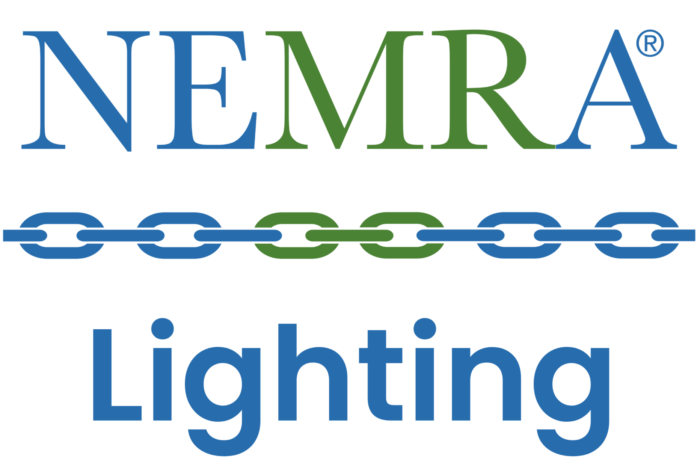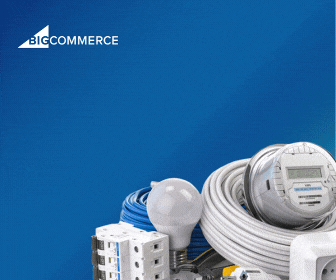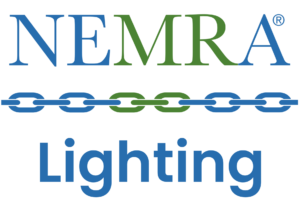Does it feel like we’re heading into a recession …

Or are we talking ourselves into a recession?
Since the fall and the beginning of planning season there have been some economists who have been warning of a second half 2019 slowdown leading to a 2020 recession. Their prognostications were based upon some trends, the fact that we’ve been in a growth cycle for awhile and “are due”, the last year’s tariffs and the one that was pending for January and a rising Fed rate.
The challenge is that some of this is coming true (tariffs), some isn’t (Fed increasing rates) and the rest … “depends” as national trends can read one way but your local market can be different. The difference … national doesn’t matter for most distributors but it does for manufacturers.
My friend Frank Hurtte wrote a piece for his blog sounding a warning about a pending recession based upon ITR’s economic forecast. Perhaps it will occur. But the question becomes, are we talking ourselves into a recession?
The reason for the question … ITR gets mentioned regularly within the industry as many follow them / some have retained them. So, with data commentator …
But, some other anecdotal thoughts:
- The most recent tariff increase will affect more electrical products. Yes, manufacturers will push through more price increases as they cannot be expected to absorb all of this. The question becomes, what percent of electrical product sales will be affected by tariffs and what will this due to electrical material consumption? The greatest impact could be on the renovation market and pending projects. Projects that have broken ground are obviously funded but may have a cost overrun for electrical, but will still get completed. The rest could get delayed. But, with the tariffs, it’s all about the parties “talking” (and maybe the next tweet.)
- While historically it is rare that the economy suffers in election years, this one is, shall we say “unique.” A commentator on CNBC recently cautioned that if businesses see that “social progressives” may win the presidency and control Congress that these business leaders may scale back investments due to concerns about increased taxes to pay for universal “everything”. Obviously an unknown on all parts at this time … but again, “talk”.
- Does the recent stock market plunge create concerns that impact actions?
And then I recall a comment from Bob Murray, the Dodge Analytics chief economist, at Dodge’s October Outlook conference. His tea leaves, at the time, said that if the tariffs increased in January (which happened in May), his early 2020 read foresaw a decline in the construction markets of 5% in 2020 in constant dollars but could be worse due to tariffs. He discussed a potential recession but predicted that, if it happens, it would be 2020 and “not at the level seen in 2008/2009.”
Cristian deRitis, Moody’s deputy chief economist, also spoke at the Dodge conference shared his projections which forecast a Q2 2020 recession with 1.7% attributed to the tariffs if the tariffs affect $500 billion of imports from China (we’re only halfway there so far, so .8%) but with the recession being “garden variety” and relatively short in length. (Click here for our observations from this meeting.)
So, the question becomes, “what do you think?”
Based upon your market (local or national), do you see a recession on the horizon? How is your backlog? What are your customers saying about their backlog and quotation activity? Is your feedback widespread or only selected customers? Are you hearing from all locales within your footprint?
While some are sounding the trumpets for distributors to cut “this and that” (people, inventory, some investment, etc), remember, you can also choose to look at a recession as an opportunity.
Prudent business management should be focused on if you feel there will be a speedbump in the business … but you also don’t want your staff to panic. Good business management practices should be adhered to.
Yes, many of us have been through this rodeo before and there are tried and true business management strategies to implement to strengthen a business before entering a recession and while in one. But, before stopping all growth planning and calling an emergency management meeting to prepare for a recession, perhaps casually ask:
- Are we utilizing our suppliers’ inventory balancing / return programs regularly like we’re supposed to? Did we do a “clean-up” from last year?
- Are you tracking what % of your inventory is obsolete? Excess?
- Are you tracking the % of line items that are being overridden and their dollar value?
- When was the last time you looked at your pricing?
- How are our receivables? Specific customers? Customer groups? Geographically? Are DSOs by segment starting to increase?
- What % of sales is on SPAs? And are you maximizing the utilization of existing SPAs?
- Has our business mix changed? Our product mix?
- Are you tracking sales performance sequentially for the past 3 months? The past 12 months?
- How is quotation activity? Your close rate?
- What is the trend with your backlog?
- How’s your credit line with the bank? If business is good, consider how you could expand it so you can take advantage of opportunities. In downturns, scale, and access to cash, can have its advantages.
- When was the last time we looked at employee demographics? Any potential retirements coming up? What is our turnover rate and why? How is our compensation rates vs the local market? Are we doing reviews and documenting performance, including performance improvement plans (remember … just in case).
- What agreements are due for renewal that perhaps we could “lock in” at preferential rates?
- Whom do we think are “weak” players in the market or companies that may “overreact” if there is a downturn? Whom could we target (companies and/or people)?
Some things distributors could consider:
- Identify ways to improve margins. Talk to Jigsaw Systems for their cost-effective way to add 2-5 points to your stock business AND enhance the effectiveness of your SPAs.
- Don’t have a website? Get one up quickly and cost effectively. Get a demo of EvolutionX-Electrical. It will be a 2019 investment that has continual payback and is cost-effective longer-term as it is a SaaS model.
- Small and don’t think you want / can manage a commerce-enabled website, ask DDS about their Distributor Catalog Exchange (DCX). You can have a robust catalog, up and running in less than 30 days, with content from your key suppliers very cost-effectively (and some may even help you financially!) Why overpay for content that isn’t complete or comes from your manufacturers?
- Need content for your site? Why get it from multiple sources when DDS has over 3.5 million SKUs from almost 900 manufacturers?
- While most focus their marketing efforts in a downturn, eMarketing enables you to expand your reach, cost-effectively.
- A great way to “beat” a recession is to consider a performance-based incentive or loyalty / frequent buyer strategy that launches “earlier” to capture attention and business. Channel Marketing Group has over 30 years’ experience developing these programs. We can provide an unbiased analysis of your existing program and provide enhancement ideas and/or design a program for you. Incentive programs are not only for “large” distributors as we’ve done for companies as small as $10M to $500M distributors, account-based strategies for manufacturers as well as sales incentive programs for distributors and manufacturers. Programs can be for contractors, sales and industrial / institutional accounts. Different reward systems for different audiences. And we make the programs engagement-driven and integrate supplier support.
As a manufacturer, some questions to consider are:
- What are our distributors hearing from their customers?
- What is the quotation activity?
- What are specifiers’ quotation activity? What are contractor backlogs?
- Are we seeing an uptick in distributors asking about our return policy?
- Are we “distributor friendly” and easy to do business with to ensure we’re “first choice” if business slows?
- Which distributors are investing in their business that we need to be “tighter” / “more closely aligned” with?
- Where should we be targeting our support (human and financial)?
- Should we streamline our distribution channel?
- What could we learn from our sales organization about us? Where can we improve?
And now is the time to further consider how to automate repetitive processes as, in any recession, unfortunately, people are the first casualty but the work still needs to be done. Manufacturers can consider how to streamline / automate their SPA processes and also consider some of the NEMRA POS initiatives.
If 2019 appears that it will be a profitable year (and you are not publicly held), and after you take into account staff bonuses, consider what investments can be made this year that reduce your taxes that will give you a head start on next year
And here are some prior postings / articles regarding recession strategies:
- Surviving in a Recession or a Slowdown
- Recession + Productivity = Profits
- Uncertainty + Intransigents Could = Politically Induced Recession?
- 4 R’s of Growing During a Recession
- Creative Offense Supports Strong Defense
We haven’t “drank the juice” that a recession is pre-ordained, but sometimes a “scare” is needed to refocus on good business practices that can help improve profitability, strengthen the company and reinforce a strong foundation to propel for future growth.
If you are financially strong and have a vision for your company, recessions can be growth opportunities as it is a time to be aggressive (while being fiscally responsible) to take advantage of opportunities. Customers want to do business with companies that are in growth mode, that are investing into resources to support the customer, satisfying customer needs and delivering ideas and solutions that make the customer more productive / profitable. Investing in “the front of the house” can deliver strong dividends.
As they say “can’t win if you don’t score runs.” Need a strong offense supported by a good defense.
While we (as a country, as an industry) may talk our way into a recession, you can also plan for growth by being prudent to protect the downside and planning to take advantage of opportunities
Interested in how Channel Marketing Group could help you gain insights from your customer base, suggest enhancements to your branding and marketing activities, or stimulate growth and profitability initiatives, email us or give us a call.























